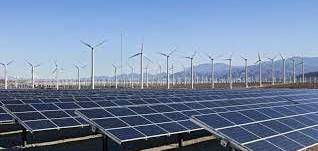
A year ago, we greeted 2021 with cautious optimism when newly developed vaccines promised change in the fight against the COVID-19 pandemic. Emphasis was placed on the need to rebuild better and do things differently, as many countries began to rethink and rebuild their economies.
For African countries, however, the pandemic has exposed the harsh realities of global inequality. These countries have gone out of their way to strengthen their crumbling food systems; they did not have industries capable of redirecting production towards essential personal protective equipment, even as young Africans were deprived of lessons due to the lack of access to electricity and the internet, which made almost impossible to switch to virtual learning.
The pandemic has revealed that Africa, despite its best efforts, is not prepared for some of the emergencies of our time, whether it is the pandemic or the looming threat of climate change.
The United Nations Office of the Special Adviser on Africa is advocating for Africa to move to 2022 with a sense of absolute urgency to build the continent's resilience. We are convinced that the foundations of this resilience lie in the access of Africans to reliable, affordable and sustainable energy.
For more than a decade, the United Nations has presented energy as "the golden thread that links economic growth, social equity and environmental sustainability" to achieving the 2030 agenda for sustainable development. Energy is the key to unlocking the future of Africa as envisioned in the African Union's Agenda 2063.
Whether it's transforming the economy, ensuring food security, digitizing education, revolutionizing health systems, building manufacturing and industrialization capacities, or keeping the peace by creating quality jobs and delivering services, no country in the world has achieved these ambitions without abundant and affordable access to energy.
Access to energy will be critical in the continent's efforts to address the effects of climate change, including adverse weather events, water scarcity and significant threats to livelihoods.
However, in the global race to fight climate change, Africans are not the best off when it comes to energy.
First, the funds pledged to invest in reliable energy systems and adaptation are only reaching very slowly where they are needed most.
Second, Africa could be handicapped if global policies to limit greenhouse gas emissions and proposed timelines for achieving net zero emissions do not take into account the unique and nuanced circumstances of the continent.
Looking at what 2022 has in store for Africa in terms of equitable energy access, it would be remiss not to reflect on three major events that took place in 2021, namely the High Level Dialogue on Energy (HLDE), the Food Systems Summit and the United Nations Climate Change Conference (COP 26).
Among other factors, energy remains vital for the full implementation of the promises made at these events. In the roadmap that followed the HLDE, United Nations Secretary-General António Guterres set a deadline of 2025 for 500 million more people to have access to electricity and one billion more people to have access to electricity. access to clean cooking solutions.
The Food Systems Summit called for a transformation of global food systems "so as to contribute to the nutrition, health and well-being of people, to restore and protect nature, to be climate neutral , adapt to local circumstances and provide decent jobs and inclusive economies. "
The CoP26 outcome document calls on countries to set bold and enhanced emission reduction targets through more ambitious Nationally Determined Contributions (NDCs) for CoP27.
What does this mean for African countries? These ambitious proposals require massive investments in capacity building, infrastructure development and regulations. Indeed, the amounts needed are much greater than anything currently on the table.
Although important financial promises were made at these summits, African countries are rightly wary of their achievement. Developed countries continue to "progress" to deliver the climate finance target of $ 100 billion by 2020 (a broken promise) and now hope to meet it by 2023.
In addition to these broken promises, confidence has been further eroded by the highly variable and uneven pace of recovery from the COVID-19 pandemic, as evidenced, for example, by the lag between COVID-vaccine distribution promises. 19 and what was delivered to African countries.
There are more and more calls for the private sector to fill these financial gaps. However, the private sector inherently operates on a profit model that differs from the public good model expected of the public sector. We need the right incentives, foolproof technologies that can guarantee certain profit margins and risk minimization models so that the sector can intervene on a sufficiently large scale.
In addition, the nuanced approach and the extended timeframe required for Africa to achieve a balanced energy mix are lost in the confusion. African countries should not be confined to limited options or forced into unsustainable energy access pathways, especially with the call on public financial institutions to end international support to the sector. of fossil energy in 2022.
The stakes are high for Africa, hence this urgent call to action in favor of building the continent's energy systems. Energy has an irresistible multiplier effect for the rebirth of Africa. It is the cornerstone of food security by improving the efficiency of food production, storage and transport, as well as job creation through added value.
The reduction in post-harvest losses, combined with improved cooking solutions, would have the additional benefit of minimizing deforestation. Africa's industrial revolution and realizing the potential of the African Continental Free Trade Area depend on access to reliable, affordable and adequate energy.
Finally, access to energy is one of the main building blocks for delivering services, adapting to climate risks and providing sustainable livelihoods, thus ensuring the peace, security and development of the continent for the next generation.
As we prepare for COP 27, we cannot be complacent. We must advocate together for a fair future for Africa through a balanced energy mix and realistic deadlines. We owe it to all Africans - past, present and future - to go beyond negotiating the bare minimum.
Sources
 Ms. Bitsat Yohannes-Kassahun is Program Management Officer in the Office of the United Nations Special Adviser on Africa.
Ms. Bitsat Yohannes-Kassahun is Program Management Officer in the Office of the United Nations Special Adviser on Africa.
Posted on 2022-01-05 11:02








Comments